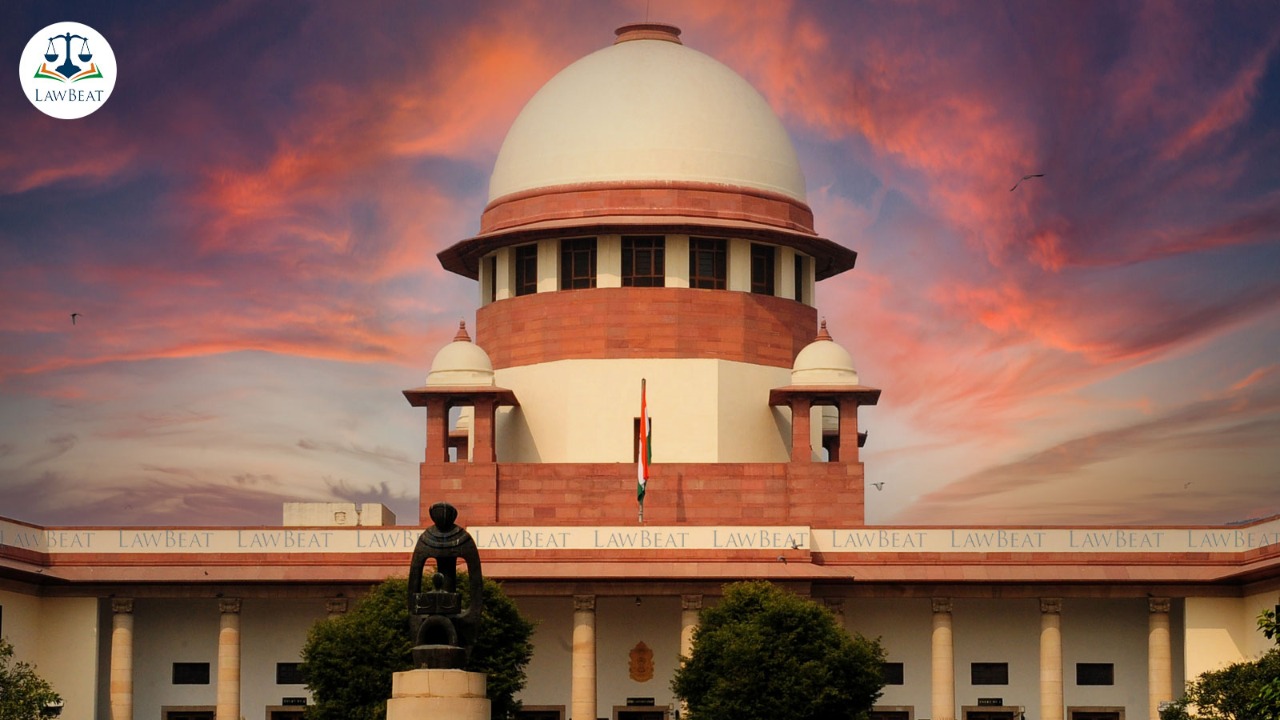Court Martial Proceedings Invalid If Reasons for Appointing A Junior Judge Advocate Are Not Recorded: SC

The top court held that the high court had correctly held that the convening order suffered from incurable defect
The Supreme Court has on September 9, 2024 said that failing to record the reasons for appointing a junior-ranking officer than the charged officer as a Judge Advocate in the convening order would render the court martial proceedings invalid.
A bench of Justices Prashant Kumar Mishra and Prasanna Bhalachandra Varale dismissed an appeal filed by the Union government against the Punjab and Haryana High Court's May 21, 2014 order which set aside the Armed Forces Tribunal's (AFT) decision.
The AFT had upheld the findings and sentence of dismissal awarded to Lt Col Rahul Arora in court martial proceedings.
The respondent was first commissioned in the Army Medical Corps as medical officer from May 29, 1978 to July 31, 1983. He was again commissioned as regular officer in AMC on February 25, 1987. In 1996, he was designated as Graded ENT Specialist and was then upgraded as classified Specialist ENT in the year 2001.
In the month of February 2002, the respondent was posted at Military Hospital, Secunderabad wherein he was required to examine new recruits being forwarded by various training centres.
In September, 2002 one recruit/Soldier/GD K Siddaiah alleged that the respondent paid money for reviewing its remarks “unfit” to ”review after 15 days”. The statement of the recruit was recorded and the respondent was charge-sheeted. Three charges were framed against him.
Upon conclusion of the proceedings, he was dismissed from service. He preferred proceedings before AFT, which upheld the findings of guilt and the sentence of dismissal from service.
The High Court, however, allowed the writ petition preferred by him solely on the ground that an officer junior to the respondent has acted as Judge Advocate in the GCM contrary to the law laid down by the Supreme Court in Union of India & Anr Vs Charanjit Singh Gill (2000).
Assailing the order, the Union government said there is no blanket prohibition on appointing an officer of lower rank than the charged officer to serve as Judge Advocate in a Court Martial. Govt strenuously urged that in Charanjit Singh Gill, the top court carved out an exception and the present case fell within the exception inasmuch as non-availability of an officer of equivalent or higher rank was specifically recorded in the convening order.
The counsel for the government also referred to Army Rule 103 that a court martial would not be invalid merely by reason of any invalidity in the appointment of the Judge Advocate officiating thereat.
The respondent's counsel submitted that one Major Rajiv Dutta was appointed as a Judge Advocate in the Court Martial, who was junior in rank to the officer.
He said that this was informed by forwarding a certified copy of the convening order under the Army Rules 33 (7) and 34, which was also received on October 07, 2014. Both the copies were filed with the written statement. In these orders, the prerequisites of bringing the appointment of an officer equivalent or junior to the rank of the respondent was not mentioned, therefore, the High Court had taken the correct view in the matter.
In the case, the court examined the legality of the appointment of Judge Advocate who was admittedly junior to the respondent.
The bench did not dwell upon the facts of the case or the merits of the charges.
The court noted that before the High Court two convening orders were produced one by the officer and the other one by the appellant authorities.
After comparing the documents, the High Court had recorded a finding that the convening order, produced by the appellant had been altered after the same was dispatched and received by the Headquarters Artillery Centre, Hyderabad, the court found.
The bench also noted that the High Court specifically observed that once a document had been put in the course of transmission by the General Officer Commanding, Andhra Pradesh, Tamil Nadu, Karnataka and Kerala area, it could not be changed/altered or modified except after recording that there was a mistake, which needed correction. Once dispatched by the officer signing the same, the communication of the document is complete and any alteration is unauthorised, it held.
"It is quite apparent that the reason for culling out exception as held permissible by this court in Charanjit Singh Gill, was not mentioned in the document while the same was dispatched by the issuing authority and supplied to the respondent. Subsequent mentioning of the reason in the other document, after putting signatures by the issuing authority, was unauthorised and impermissible, the High Court has correctly held that the convening order suffers from incurable defect as held by this court in Charanjit Singh Gill," the bench said.
The court thus said that the legal position was thus well settled in Charanjit Singh Gill that non-recording of reasons of appointment of an officer junior in rank as a Judge Advocate in the convening order would invalidate the proceedings.
"The High Court has not committed any error of law in holding so in the facts and circumstances of the case," the bench said.
With regard to reference to Army Rule 103, the bench said that the protection under this rule was available only where a fit person had been appointed as a Judge Advocate.
Case Title: Union of India & Ors Vs Lt Col Rahul Arora
